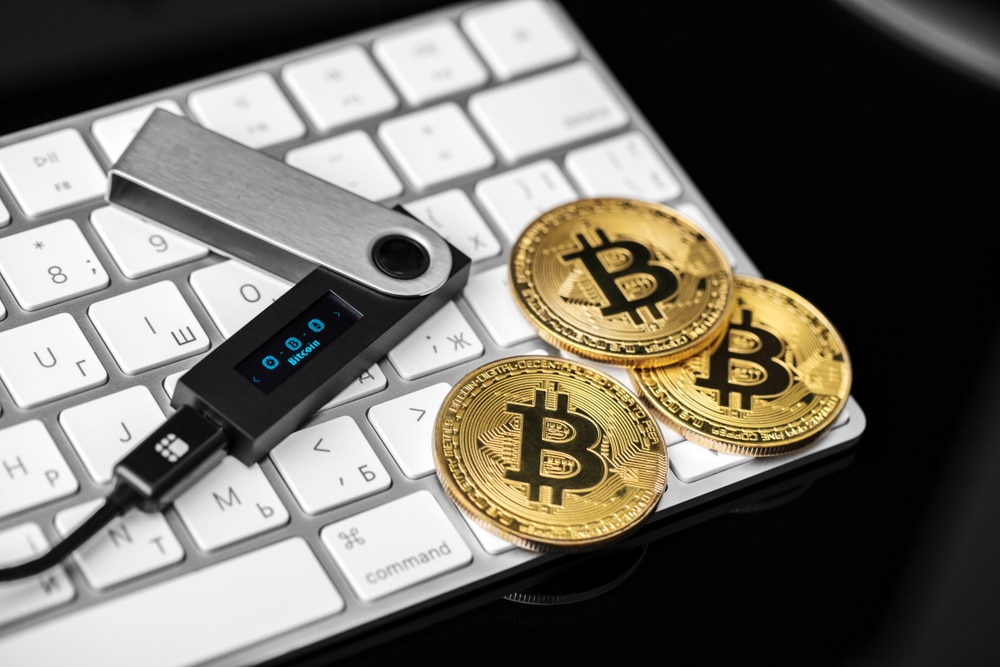
Understanding How Hardware Wallet Enhance Crypto Safety
Interest in cold storage systems such as Trezor and Ledger and the importance of hardware wallet has hit the roof after FTX’s insolvency.
Following FTX’s unexpected fall in November 2022, sales for hardware wallets that permit owners to hold and transfer crypto without constant connection to the internet blew up. For instance, on November 13, sales for Ledger, a famous wallet manufacturer, attained an all-time high, capping off the best week ever, and later rose again the following day.
The new activity rush indicated a renewed interest in the technology. This guide explains whether a hardware wallet is required to safeguard crypto.
Hardware Wallet Explained
Cryptocurrency wallets are similar to the crypto-verse’s financial email addresses. Similar to how email accounts blast out text messages to other account holders, persons with the keys to a wallet can send and get cryptocurrencies from other wallets on the blockchain.
The public key is similar to one’s email address since any person can send to it. The private key is equivalent to an email password since it is only known to the individual.
One must know the private key or password to access the crypto inside a wallet. Further, a 12 to 24-word ‘seed phrase’ is needed to recover access or set up the wallet on a new browser or gadget.
‘Hot wallets’ refers to wallets living inside web applications or browser extensions. One is not required to enter their private key each time they are required to utilize the wallets.
Hot wallets are nearly always free and quite convenient. However, if a person hacks or steals someone’s phone or computer, they might access their crypto.
How Does Hardware Wallet Addresses Security Risk?
This security risk resulted in the creation of the hardware wallet, a cryptocurrency wallet that is not linked to the internet every time. Rather, the crypto wallet’s keys are stored on a small gadget approximately the size of a USB stick and plugged into the computer whenever one desires to interact with a decentralized finance protocol or send crypto.
The two leading hardware wallets are Trezor and Ledger, which both provide the same services. Trezor’s Model One wallet is nearly $50, while A Ledger Nano S Plus is nearly $79.
The variations between the models sold by hardware firms cover the number of cryptos they support, the device’s buttons or battery life, and the security structure. When a person plugs a gadget into their computer, they connect to the hardware’s proprietary desktop app.
One can send crypto or interact with decentralized finance protocols following the connection. The apps cannot work in the absence of the hardware wallet.
When interacting with the blockchain, a person must verify the transaction directly from the wallet. Hardware wallets can be challenging to utilize. For example, the most famous model from the Ledger has two buttons only, making it difficult to enter the four-digit numeric passcode that safeguards the wallet.
However, the wallets’ safety increases their popularity with HODLers who would not prefer keeping most of their crypto in a hot wallet or an exchange.
Hardware Wallets Safety
The wallets are as safe as the user. In this case, they can be considered the crypto equivalent of putting cash under the mattress.
In case somebody steals a person’s Ledger and knows their passcode, they can withdraw funds from the wallet. The most critical thing is the seed phase generated by the wallet, something encouraged by the firm to ensure safe storage. In case loss or theft happens, a person gets into trouble.
The firms that make hardware wallets cannot reverse blockchain transactions, meaning margins for error are reduced. Several traders still believe it is better to take the risk with a hardware wallet than to hold funds in a hot wallet or centralized crypto exchange.
Final Thoughts
It is difficult to know how a crypto exchange invests funds, and it is more difficult to avert the hacking of a hot wallet. In case a person intends to keep their funds in a hardware wallet, they should conceal the seed phrases and should not make digital copies.
Editorial credit: Ruslan Ivantsov / Shutterstock.com




